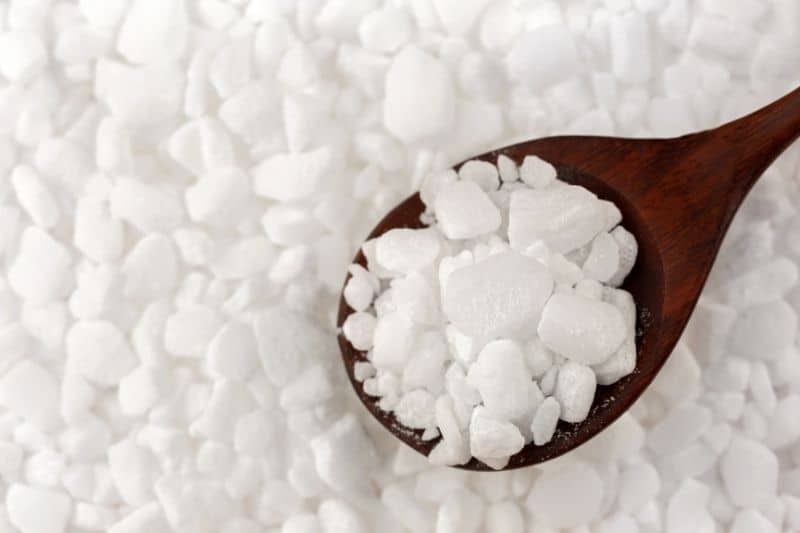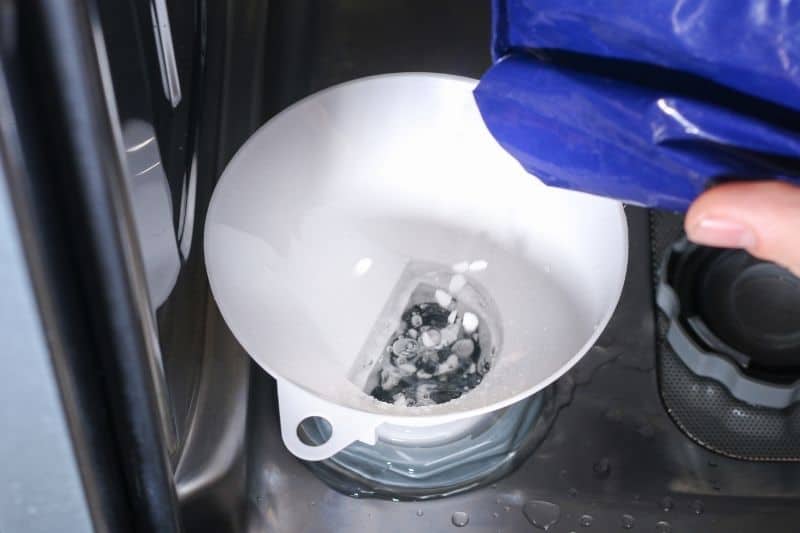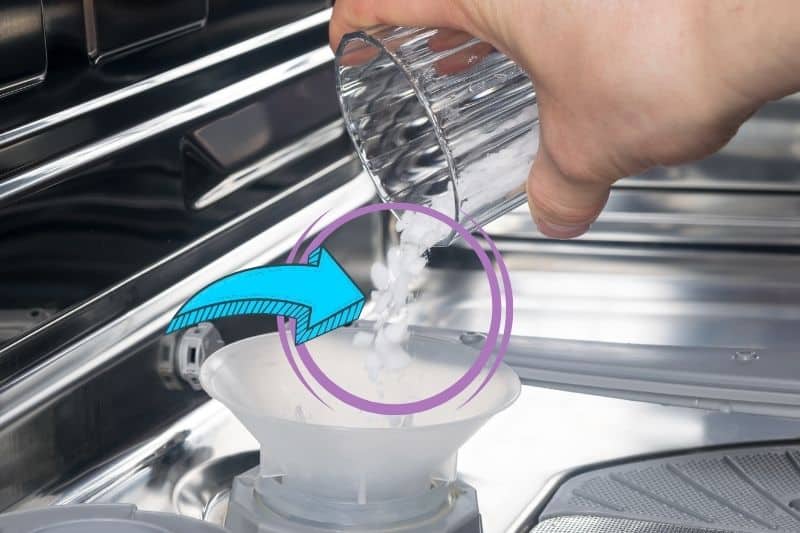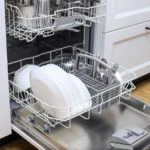Dishwashers need to use soft water to ensure the very best cleanliness results, and that’s why dishwasher salt is key to the smooth running of your dishwasher.
The hardness in the water is absorbed by the sodium in the dishwasher salt when it combines with the resin balls in your dishwasher’s water softener basket as the machine runs.
This is because the dishwasher salt has a positive atomic charge, and the resin balls have a negative atomic charge. The calcium and magnesium switch with the sodium ions and effectively take the hardness out of the water.
Hard water has more lime in it and will make it harder for your dishwasher detergent to dissolve. Dishwasher salt is essential in removing the white residue that can sometimes appear on glassware.
Putting dishwasher salt into your machine resets the sodium stores in the resin balls and ensures that they don’t get exhausted and are able to absorb more. Dishwasher salt is what guarantees a proper cleaning effect, and it is at its most successful when in soft water.
Not enough salt in your water will make it harder, and this could cause your dishwasher to have a build-up of limescale inside the pipes. This may lead to blockages and other problems in the future. Harder water can also affect your glassware and cause it to become cloudy over time.
What Is Dishwasher Salt?

Dishwasher salt is made up of course-grained sodium chloride and is designed to soften the water that’s being run through your machine to ensure that your dishes are being washed properly and your dishwasher’s pipes do not get blocked.
It’s very important to ensure that you’re using an approved dishwasher salt and not any other type of household salt as these will swiftly cause damage and probably severe blockages.
How Do You Know When You Need Dishwasher Salt?
It’s important to figure out what the hardness of the water is in your home. This can usually be done by contacting your water supplier, most likely online. What you’re looking for is the concentration of calcium and magnesium irons in millimole per litre (mmol/l).
You can also buy a hard water test strip to test your water’s hardness level. These can usually be bought online, are user-friendly, and provide fast, accurate results.
Once you figure the hardness levels out, you can follow the instructions in your dishwasher manual to make sure that you’re adding the right amount of salt to your machine to ensure optimal water softness.
The manual should also tell you the best settings to use on your machine based on your water.
How Do You Use Dishwasher Salt?
If you pull out the lower rack at the bottom of your dishwasher, you should be able to access the salt compartment. Many dishwashers will come with a funnel that can be used to pour the salt and ensure that all of it goes into the salt compartment without making a mess.

You can also lookout to see if your dishwasher has a salt refill light, which will turn on when it is time for you to refill your salt compartment. If you don’t have the refill light, then it is recommended to refill your salt on a monthly basis.
When adding the salt, make sure to fill the unit all the way up, as long as you do not go over the waterline.
It’s also important to only put your dishwasher salt into the compartment specifically designed for it, as any loose salt may cause dirty dishes or could affect the general running of your machine.
So, if you start to notice that your dishes are coming out less clean than they were a few days ago, it probably means that your salt levels are getting a little low, and it may be about time to refill that salt compartment.

An adventurous book lover with an animal obsession and a proclivity for travel and spontaneity. Used to passionately despise cleaning but has grown to enjoy it thanks to learning all the best tricks and shortcuts to guaranteeing a stress-free routine and a spotless home.





